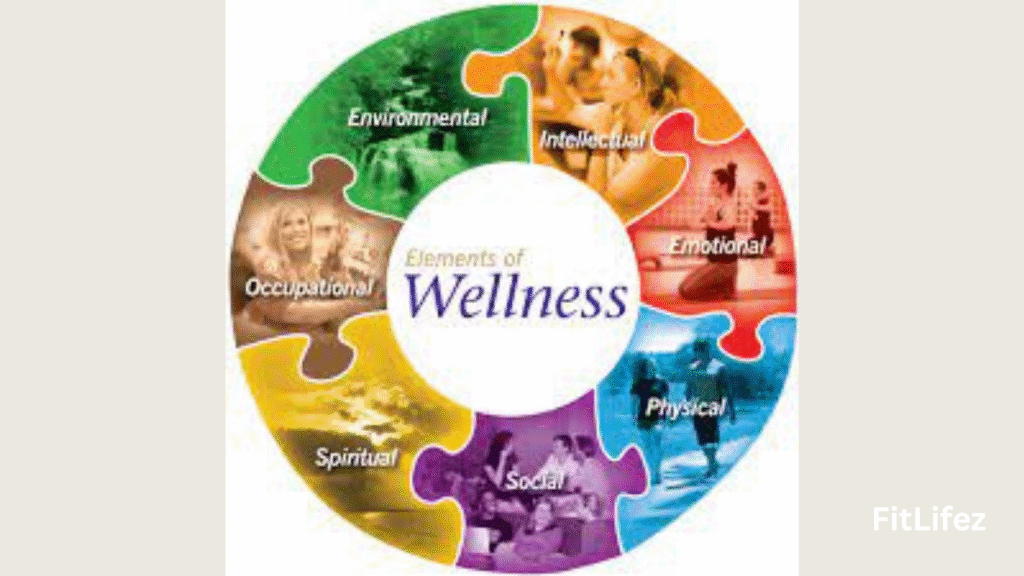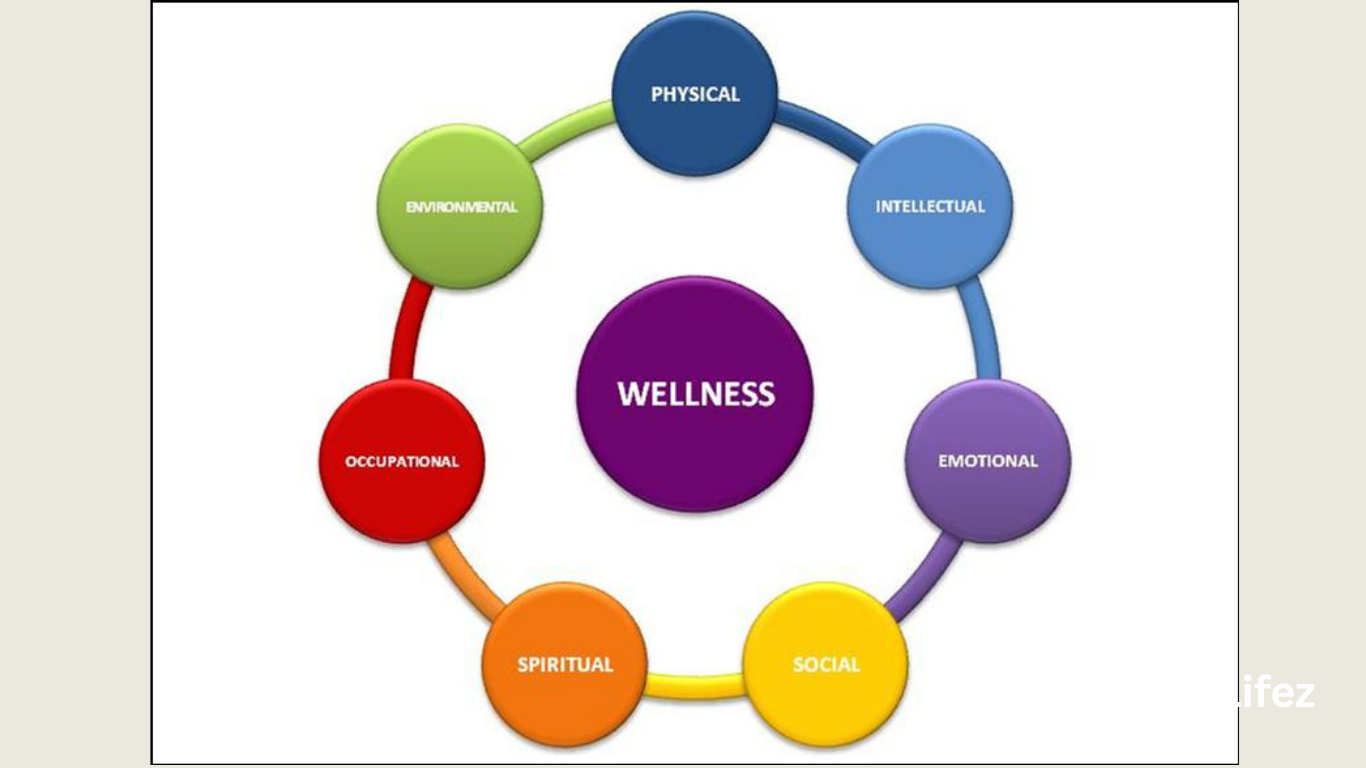In today’s fast-paced world, wellness has become more than just a buzzword—it’s a way of life. True well-being goes far beyond physical health. It encompasses various dimensions that work together to create a balanced, fulfilling life. These are commonly referred to as the 7 areas of wellness, each essential to maintaining a healthy, purpose-driven lifestyle.
Whether you’re aiming to reduce stress, improve your mental clarity, or simply enhance your day-to-day energy, understanding and nurturing these seven dimensions of wellness can profoundly transform your quality of life.
1. Physical Wellness
Physical wellness is the most commonly recognized dimension—and for good reason. It includes everything related to the body: nutrition, exercise, sleep, and preventive healthcare.
When you prioritize physical wellness, you:
- Improve immune function
- Increase energy levels
- Prevent chronic illnesses
- Enhance overall quality of life
Tips to improve physical wellness:
- Eat a balanced diet rich in fruits, vegetables, lean proteins, and healthy fats.
- Engage in regular physical activity—aim for at least 150 minutes of moderate exercise per week.
- Get 7–9 hours of sleep per night.
- Stay hydrated and avoid excessive sugar, alcohol, or processed foods.
- Visit your doctor for regular check-ups and screenings.
A strong foundation in physical wellness supports all other areas of life and wellness.
2. Emotional Wellness
Emotional wellness refers to your ability to manage stress, cope with challenges, and express emotions in a healthy and constructive way.
When emotionally well, you’re more:
- Resilient during hardships
- Self-aware and empathetic
- Capable of managing relationships effectively
Boost emotional wellness by:
- Practicing mindfulness or meditation
- Journaling your thoughts and feelings
- Seeking therapy or counseling when needed
- Building strong support systems with friends and family
A high level of emotional wellness enhances your mental clarity, decision-making, and life satisfaction.
3. Intellectual Wellness
Intellectual wellness is all about keeping your brain active, curious, and open to new experiences. It encourages lifelong learning, creativity, and mental stimulation.
Key aspects include:
- Critical thinking
- Problem-solving
- Creativity and innovation
- Open-mindedness
Improve intellectual wellness by:
- Reading books, blogs, or listening to educational podcasts
- Engaging in stimulating conversations
- Taking up new hobbies or learning new skills
- Playing memory games or puzzles
Stimulating your mind daily keeps you sharp and enhances cognitive health, which plays a vital role in overall wellness.
Another crucial element of intellectual wellness is learning from others. Participating in workshops, webinars, or mastermind groups allows you to exchange ideas and expand your perspectives. Make it a habit to challenge your thoughts and question the status quo, as doing so fosters growth and mental agility.
4. Spiritual Wellness
Spiritual wellness involves finding meaning and purpose in life, which often connects with values, beliefs, and morals. It doesn’t have to be religious—it’s more about inner peace, purpose, and a connection to something greater.
Benefits include:
- Enhanced sense of purpose
- Deeper self-awareness
- Greater compassion and tolerance
Ways to develop spiritual wellness:
- Reflect through meditation or prayer
- Spend time in nature
- Volunteer for causes you care about
- Engage in practices that align with your values
A strong spiritual foundation can offer clarity during difficult times and provide long-term emotional stability.
Spiritual wellness also encourages ethical behavior and personal integrity. When your actions align with your core values, you develop a stronger sense of identity and confidence. This alignment can bring profound peace and reduce inner conflict.
5. Social Wellness

Humans are social beings, and social wellness refers to building healthy, meaningful relationships. It involves communication, respect, boundaries, and community involvement.
A socially well individual is:
- Connected with supportive relationships
- Comfortable expressing themselves
- Engaged in community or social activities
Enhance social wellness by:
- Joining clubs, meetups, or groups aligned with your interests
- Keeping in touch with friends and loved ones
- Practicing active listening and empathy
- Being open to collaboration and new perspectives
Strong social connections not only increase happiness but also reduce the risk of mental and physical health issues.
In the digital age, it’s equally important to build positive online communities. While virtual relationships cannot replace face-to-face interaction, they can complement social wellness when approached mindfully and ethically.
6. Occupational Wellness
Occupational wellness focuses on finding fulfillment in your work and balancing it with other life areas. It’s not just about income but also about purpose, growth, and satisfaction.
People with high occupational wellness:
- Feel fulfilled by their career or work
- Maintain work-life balance
- Continually develop new skills
To improve occupational wellness:
- Choose work that aligns with your values and passions
- Set clear boundaries to avoid burnout
- Seek professional development opportunities
- Evaluate your goals regularly
Remember, career satisfaction plays a significant role in daily well-being and life purpose.
Another way to enhance occupational wellness is by finding meaning in your daily tasks. Even small achievements can contribute to a sense of progress. Surround yourself with supportive colleagues or mentors who motivate and inspire you.
7. Environmental Wellness
Environmental wellness involves living in harmony with your surroundings and taking steps to protect the planet. Your environment directly impacts your health, comfort, and ability to thrive.
Core elements include:
- Safe and clean living spaces
- Sustainable habits
- Respect for nature and biodiversity
Steps to boost environmental wellness:
- Reduce, reuse, and recycle
- Use eco-friendly products
- Spend time outdoors and appreciate nature
- Create a tidy, uplifting home or workspace
By being environmentally conscious, you support both your health and the health of future generations.
Environmental wellness also includes how you influence your environment socially and emotionally. Maintaining positive vibes at home or work and being respectful toward others contributes to an overall peaceful atmosphere.
Why the 7 Areas of Wellness Are Interconnected
Each dimension of wellness is deeply interconnected. For example, poor physical health can lead to low emotional resilience, while weak social connections may impact your spiritual well-being.
A balanced approach ensures that:
- No area is neglected
- You’re resilient to stress and setbacks
- You live a more meaningful, joyful, and productive life
Focusing on all 7 areas of wellness can lead to true, holistic well-being.
For instance, consider how occupational stress can affect your emotional and physical health, or how a lack of spiritual purpose might lead to dissatisfaction in your relationships. These dimensions work in unison, and imbalance in one can disrupt the entire system.
Real-Life Applications: How to Integrate the 7 Dimensions of Wellness
You don’t have to make massive life changes overnight. Start with small, actionable steps:
- Morning Routine: Include exercise (physical), reading (intellectual), and journaling (emotional).
- Work Routine: Take breaks, pursue professional growth (occupational), and communicate openly (social).
- Evening Routine: Reflect spiritually, organize your environment, and spend time with loved ones.
Consistency is key. Progress in one area often sparks improvement in others.
Create a weekly checklist that addresses each wellness dimension. Set realistic goals such as calling a friend (social), meditating (spiritual), or reading a chapter of a book (intellectual). These micro-actions build momentum for long-term change.
Final Thoughts from Muhammad Shakeel
As someone with over 5 years of experience in article writing, I’ve seen how the right content can genuinely change lives. At FitLifez, we believe that health is multidimensional—you can’t thrive by just eating right or exercising. You must nourish your mind, body, spirit, and community.
By integrating these 7 areas of wellness into your lifestyle, you empower yourself to lead a balanced, sustainable, and joyful life. Bookmark this guide, revisit it often, and take one step at a time. Wellness is not a destination—it’s a continuous journey.
Take control of your well-being today by embracing a holistic wellness lifestyle. Your body, mind, and soul will thank you.

